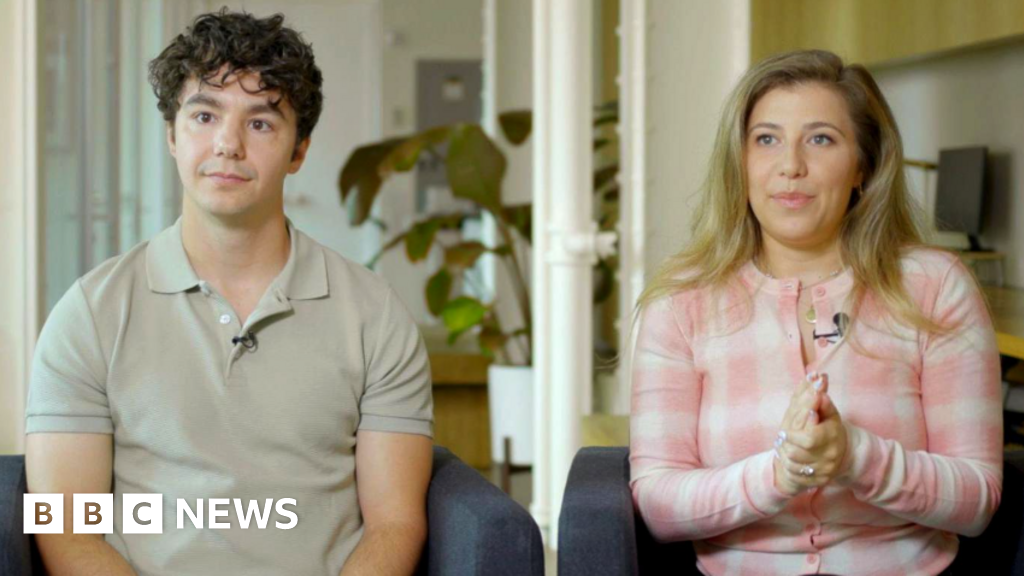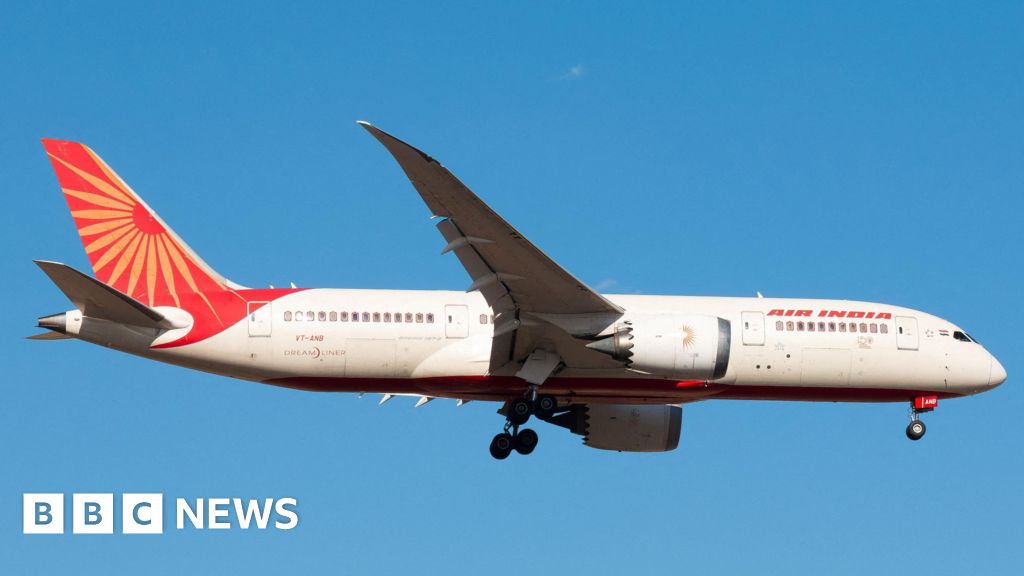ARTICLE AD BOX
It might seem odd that President Trump invited dozens of America’s top business leaders to tag along on his four-day trip to the Middle East.
Tesla and SpaceX CEO Elon Musk, BlackRock’s Larry Fink, Amazon CEO Andy Jassy, OpenAI’s Sam Altman and dozens of other top U.S. executives and investors appeared alongside Mr. Trump on the first major overseas trip of his second term.
The business moguls were there to strike new deals, but just as importantly, their appearance signaled the president’s U.S. policy reset in the Middle East to one that emphasizes prosperity and peace over the conflict and chaos that has plagued the region for generations.
“President Trump’s Middle East trip sent a shockwave through the region,” Rep. Wesley Hunt, Texas Republican, said on social media. “Peace through strength is back — and America’s enemies got the message LOUD and clear. We are building historic partnerships: commerce NOT conflict.”
Mr. Trump outlined his policy shift during an address in Saudi Arabia, his first stop on the four-day swing. He credited Riyadh and nearby cities of Dubai, Abu Dhabi, Doha and Muscat with tremendous economic growth over the past two decades.
“The transformations have been unbelievably remarkable,” Mr. Trump said. “Before our eyes a new generation of leaders is transcending the ancient conflicts of tired divisions of the past and forging a future where the Middle East is defined by commerce, not chaos; where it exports technology, not terrorism; and where people of different nations, religions and creeds are building cities together, not bombing each other out of existence.”
Treasury Secretary Scott Bessent said the president’s Middle East trip brought in $2 trillion in pledged investments to the United States for projects ranging from new data centers to manufacturing plants, which will boost U.S. jobs and economic growth.
The list includes a deal with Saudi Arabia worth $600 billion, $200 billion in commercial deals between the United States and the United Arab Emirates, and “economic exchange” with Qatar worth $1.2 trillion, among them a commitment from Qatar Airways to purchase Boeing aircraft and GE Aerospace engines.
Mr. Trump has long pursued the role of peacemaker in the Middle East. During his first term, his administration brokered the historic Abraham Accords normalizing relations between Israel and several Arab nations, including the United Arab Emirates and Bahrain. When the White House hosted the Iftar Dinner marking the end of Ramadan in March, he told Muslims he’s just getting started.
“My administration is engaged in relentless diplomacy to forge lasting peace in the Middle East, building on the historic Abraham Accords,” Mr. Trump said.
The president’s stops through the Middle East were packed with actions emphasizing peace through business deals instead of bombs. He shook up the Middle East by announcing he would end crippling sanctions placed on Syria while urging Syrian President Ahmad al Sharaa, who was once tied to al Qaeda, to make peace with Israel.
Immediately ahead of his arrival in the Middle East, he struck a deal with Hamas for the release of the last known living American hostage, Edan Alexander.
At a U.S.-Saudi investment forum in Riyadh, Mr. Trump even offered a brighter economic future to Iran, but only if the country agrees to his terms on a nuclear deal and ends its sponsorship of terrorism in the region.
If not, he’ll bankrupt it with crippling sanctions akin to the ones he imposed in his first term, the president threatened in the speech.
“I want to make a deal with Iran,” Mr. Trump said. “If I can make a deal with Iran, I’ll be very happy. We’re going to make your region and the world a safer place. But if Iran’s leadership rejects this olive branch and continues to attack their neighbors, then we will have no choice but to inflict massive maximum pressure and drive Iranian oil exports to zero like I did before.”
While in Qatar, Mr. Trump promoted his concept to transform war-torn Gaza, with help from the U.S. It follows his bombshell proposal earlier this year to turn Gaza, still engaged in a devastating war with Israel, into a massive resort.
“Gaza has been a territory of death and destruction for many years,” Trump said at a roundtable with business leaders. “I have concepts for Gaza that I think are very good. Make it a freedom zone. Let the United States get involved and make it just a freedom zone.”
Energy Secretary Chris Wright, who was also on the trip, said on social media that Mr. Trump showed an optimism and passion for peace and prosperity, “and he humbly listens to every one of them to understand their concerns and their issues and engages in an on-the-spot dialogue.”
Even Democrats, typically critical of Mr. Trump’s every move, were awestruck by his rapid-fire actions and outside-the-box proposals aimed at reordering the Middle East.
“Gosh, I wish I could work for an administration that could move that quickly,” a former Biden administration official told Axios.
Rep. Jim Himes of Connecticut, the top Democrat on the House Intelligence Committee, paid a rare compliment to the president, telling Politico, “I’ve got to tell you, I think the president has, in this last week or so, played the Middle East pretty darn well.”
Other Democrats were far more critical and said the president’s actions were motivated by self-interest.
The Trump family business has several significant ties to the Middle East, and Mr. Trump’s trip followed an announcement by son Eric Trump that UAE-based MGX will invest $2 billion in the crypto exchange Binance using the Trump family’s digital coin.
“My view is the overall narrative here was selling out U.S. national interests for the private gain of his family business,” Sen. Chris Van Hollen, Maryland Democrat and outspoken Trump critic, said on CBS News. “He essentially gave away the crown jewels of American AI and semiconductor technology to the Gulf in exchange for [what] looks like a $2 billion investment in the Trump family stablecoin venture.”
Mr. Trump announced semiconductor deals with the UAE and Saudi Arabia that drew criticism from security experts and many Democrats who fear it’s a pathway for China to obtain American AI technology.
“This deal could very well be dangerous because we have no clarity on how the Saudis and Emiratis will prevent the Chinese Communist Party, the Chinese government, the Chinese manufacturing establishment from getting their hands on these chips,” Mr. Schumer said.
Kevin Roberts, president of the conservative Heritage Foundation and Heritage Action, said Mr. Trump’s aspirations for prosperity in the Middle East leave Democrats far behind.
“Their attacks on the Trump family are desperate distractions from a highly successful trip and one of the most important speeches in modern history — a bold reset against globalism that has long sacrificed everyday Americans,” Mr. Roberts said on social media. “This is precisely the moment they should be embracing.”

 1 month ago
105
1 month ago
105








 English (US) ·
English (US) ·